Sleep issues and certain foods can lead to an early morning headache
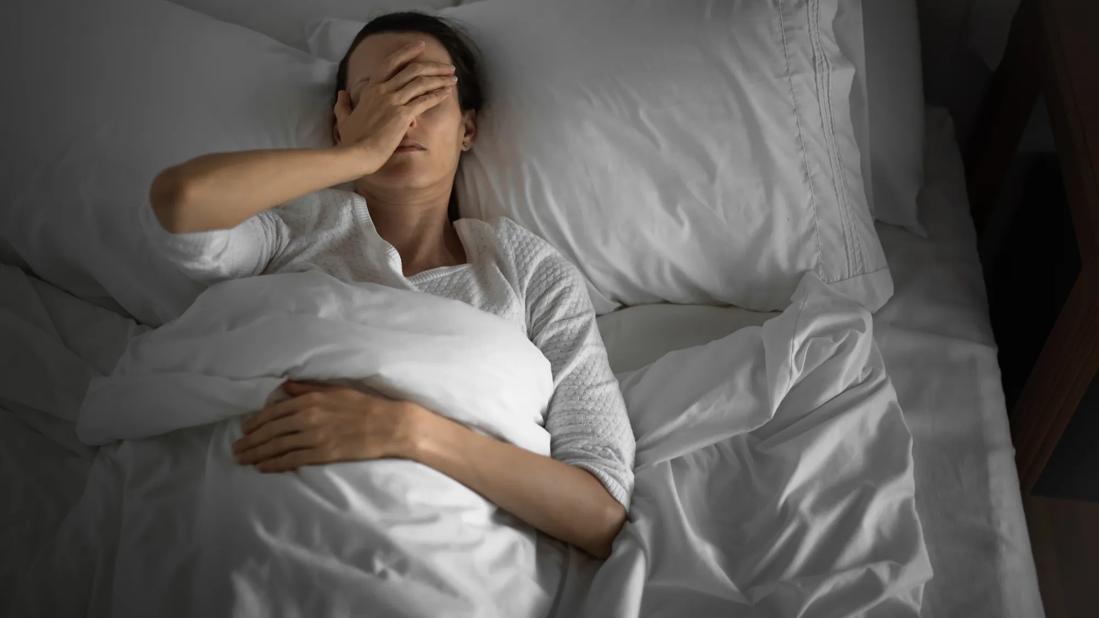
It’s the beginning of a new work week. Your alarm jars you awake, and as you rub the sleep from your eyes, you feel something a little more than just a case of the Mondays.
Advertisement
Cleveland Clinic is a non-profit academic medical center. Advertising on our site helps support our mission. We do not endorse non-Cleveland Clinic products or services. Policy
It may start out as a dull pain, but you quickly realize ... it’s a migraine. And instead of springing out of bed and tackling the day, you struggle to focus on your morning routine.
If waking up with a migraine is a common occurrence for you, it can be frustrating to begin the day at a disadvantage. And while it can be hard to pinpoint what brought on your migraines, common triggers may include sleep issues, neck pain, caffeine withdrawal, overuse of pain medication, depression and anxiety.
Neurologist MaryAnn Mays, MD, delves deeper into why you may wake up with a migraine, and what you can do to get a good night’s sleep and enjoy a peaceful morning.
Migraines can be disabling, causing you to miss work and not be present in your everyday life. Dr. Mays outlines what may possibly trigger a morning migraine.
A study shows that sleep disorders, like insomnia, teeth grinding and restless legs syndrome, can affect the quality and amount of sleep you get. This can cause more frequent migraines.
“Sleep plays several critical roles that are important for us to be able to function normally during the day,” shares Dr. Mays. “For example, we’re learning that during sleep, we get rid of metabolic waste that can build up in the brain. We believe that if processes such as these are hindered, it can result in headaches.”
Advertisement
Hydration plays a key role in staving off migraines. Stay well hydrated throughout the day and consider keeping a bottle of water at your bedside.
If you’re prone to dehydration-related headaches, Dr. Mays also recommends limiting alcohol and excess caffeine, as both increase fluid loss and may also trigger headaches through sleep disruption or caffeine withdrawal.
“If somebody is using Excedrin® or Tylenol® every single day, it actually puts them at risk for developing something called a medication overuse headache,” reports Dr. Mays.
You may turn to aspirin, acetaminophen or ibuprofen to help relieve your migraine pain. And while that may help in the short term, it can cause a vicious cycle of migraine headaches if used more than two days a week.
If you deal with migraines, you may already know that certain foods, like aged cheese, red wine and chocolate, may trigger a migraine attack. Those foods either contain nitrates or monosodium glutamate (MSG), which are known to cause migraines.
“The key thing to keep in mind is that it’s not the same foods for everybody and not everyone has food triggers,” clarifies Dr. Mays. “So, it requires patience, keeping a food diary and systematically going through your diet to identify if there’s something that might be associated with headaches.”
We’re not saying you can’t have a cup of joe, but you want to limit how much caffeine you have each day. When you drink a lot of coffee one day and then don’t have that same amount the next day, you may develop a migraine thanks to the abrupt drop in caffeine levels in your bloodstream.
So, what should you aim for? Anywhere between 100 milligrams and 150 milligrams — about a cup of coffee — a day. And that amount can actually help with migraines due to caffeine’s ability to restrict blood flow and alleviate pain. More than 400 milligrams of caffeine can put you at a higher risk of developing migraine.
Mental health issues like depression and anxiety are linked to migraines, as they affect how well you sleep and how stressed you are, which are both common migraine triggers.
“Depression, anxiety and migraine go hand in hand. We know that people who have migraines are at higher risk of depression and anxiety and vice versa,” says Dr. Mays. “We think this may have to do with the regulation of certain neurotransmitters associated with migraine and depression, like serotonin. In fact, some antidepressants have been shown to be effective in reducing the frequency and severity of migraine and tension-type headaches.”
Advertisement
Certain stimuli, like bright lights, strong smells (for example, smoke or scented candles) and loud noises, can trigger a migraine in some people.
Why does this happen? Dr. Mays says the thought is that these sensory stimuli reflect a generalized state of sensory hypersensitivity in the migraine-prone brain, which has difficulty filtering light, odors or sounds. This means they can be overwhelming and trigger headaches.
Yes, the weather can affect your migraines. A fall in barometric pressure or a sharp change in temperature can trigger a migraine. The change in pressure affects your nasal and sinus cavities by forcing fluids into your tissues.
There’s also a theory that a significant barometric pressure change may change the amount of pressure on your brain and affect how your brain blocks pain.
In the early morning hours (around 4 a.m. to 8 a.m.), your body naturally shifts its hormone levels as it prepares to wake up.
During this time, your brain’s natural pain-relieving chemicals may be less active, while “wake-up” hormones increase and sleep-related hormones decrease. In people with migraine, this shift can temporarily increase sensitivity in pain pathways, which helps explain why headaches often start or worsen in the morning.
Advertisement
Dr. Mays offers the following tips that may help prevent a migraine:
Dr. Mays says it’s best to see a healthcare provider if you think you have migraines.
“Migraines are definitely underdiagnosed, and there’s also a stigma around them,” she says. “One study found that migraines are the most disabling condition in people under the age of 50. A lot of people just consider it a ‘regular headache.’ But we’re now learning it’s so much more than that.”
Advertisement
And if you have frequent headaches that disrupt your daily life, getting checked out by a healthcare provider can help you make the necessary lifestyle changes. There are ways to help reduce the effect migraines have on your quality of life, particularly with your ability to work.
“We want to make sure that we address migraines early on and identify things that can be helpful,” reassures Dr. Mays. “It might just require some simple lifestyle changes or it might require some medication. There are many new treatment options that have become available in more recent years. But your doctor will be there to figure it out with you.”
Learn more about our editorial process.
Advertisement

Among the options is a fast-acting medication that offers relief in as little as 15 minutes

Start by reevaluating your triggers and lifestyle factors, but also consider trying new medication

A little can help, too much can hurt
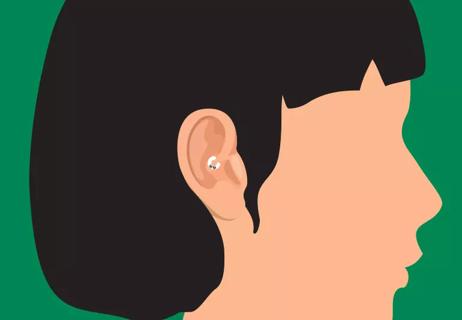
They might look cool, but there’s no scientific evidence that daith piercings ward off pain

Getting enough sleep, avoiding dietary triggers and reducing stress can provide relief
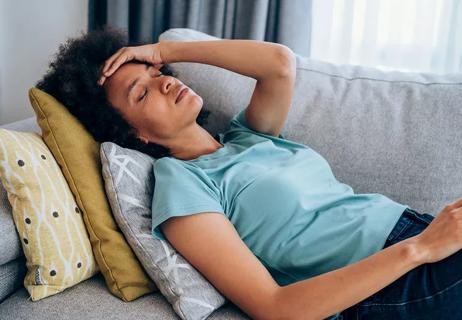
Your genes may offer some insight when learning about your migraine symptoms
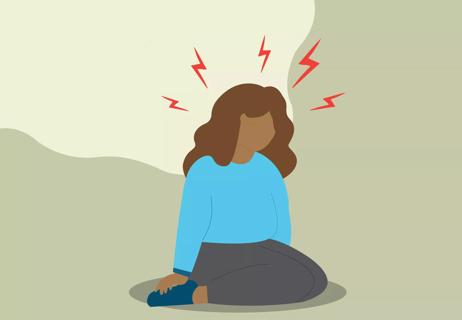
Migraine length depends on your triggers, health history and whether they are chronic
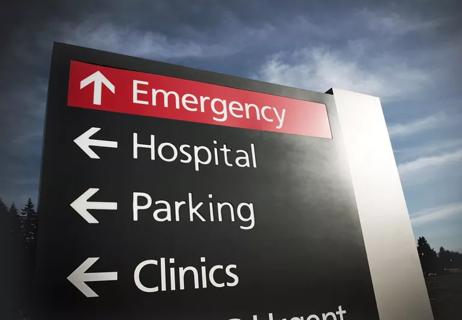
If you’re experiencing the worst headache of your life, it may be time for a trip to the hospital

Wearing a scarf, adjusting your outdoor activities and following your asthma treatment plan can help limit breathing problems

Your diet in the weeks, days and hours ahead of your race can power you to the finish line

When someone guilt trips you, they’re using emotionally manipulative behavior to try to get you to act a certain way